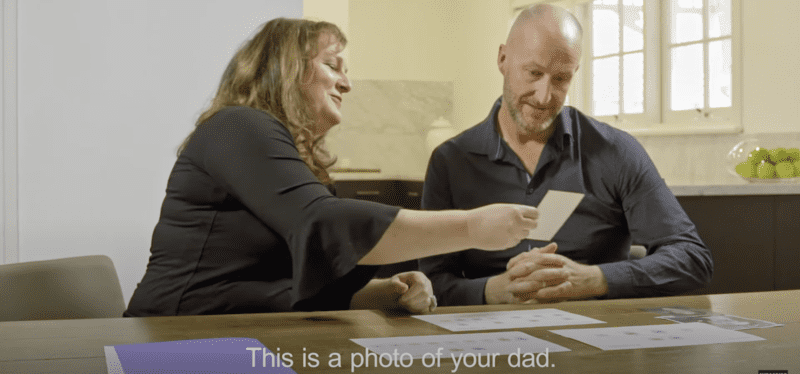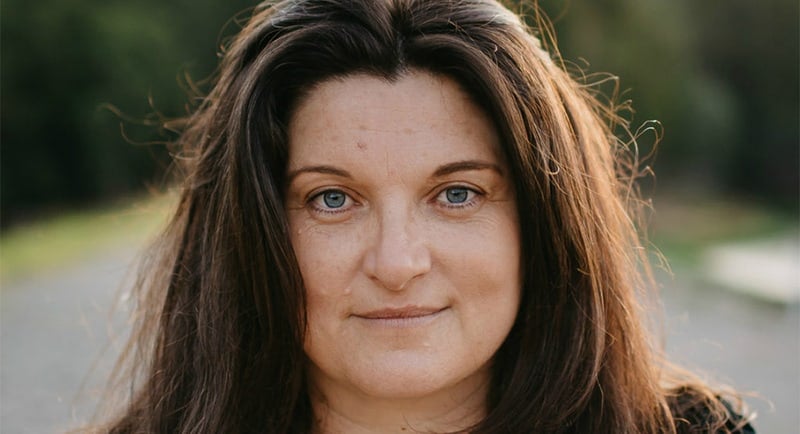The third season of Every Family has a Secret is coming to SBS and SBS On Demand from 7.30pm, Thursday March 24th.
Presented by Noni Hazlehurst, the documentary series follows everyday Australians as they search for answers about secrets within their families.
This season features two siblings who discover the circumstances of their mother’s death, a WA woman who uncovers her grandfather’s criminal history with the Mafia, a mother who abandoned her four children at a London train station, and reunions with lost family members.
Mediaweek spoke to series producer Claire Forster, from Artemis Media about what it’s like making a show about some of the most intimate moments of people’s lives.
Finding Participants
The first thing that needs to happen for Every Family has a Secret to come together is to source some secrets. Forster says that there are a few things to look out for when it comes to choosing which stories to tell.
“I have this firm belief that when people actually write in that they’re already invested. I think that’s what makes the difference, the people that end up on the programme are so invested, they’ve sometimes spent years or decades trying to find the answer.
“We do a call-out every year on SBS when the programme goes to air, and as a result of that, we’re regularly getting between 500 and 600 applications a year. Then there’s a huge amount of work to then go, okay, what’s solvable? What’s a good mix of stories?”
No matter whether people get picked for the show or not, having people write in is something that Forster doesn’t take for granted.
“People send in really personal information that is incredibly intimate. We’re always aware that beyond being stories, these are people’s defining life moments – finding out someone is your family and meeting them on camera is pretty extraordinary. We’re always aware of that privilege that comes with them trusting us to do that.”
Working Through Covid
With Artemis Media based out of Fremantle in Western Australia, it might be easy to assume that the company wasn’t as affected by Covid-19 restrictions as others, but this wasn’t the case. Forster says that the research team was the first to start hitting Covid road blacks.
“If we were doing a story in Europe, we would normally get some researcher to go into the archive, we’d know what we want to find out, they’d know how to find it. All of the archives have been closed, and so what we’ve done is find staff members that are still going in one or two days a week, personally engage with them, and then see if they will do us the favour of going down to the archive and finding the answers for us.
“Normally you have to jump through hoops, but it’s been backflips through hoops for our research team.”
It wasn’t just the researchers that ran into trouble, either.
“We were filming a story that was supposed to be filmed in Melbourne, and then it looked like Melbourne wasn’t okay. Then we were going to be in regional Victoria, and then regional Victoria looked like it wasn’t going to be okay, so we moved it to Adelaide. Then the contributors that were supposed to be flying in from Sydney said ‘we don’t want to fly to Adelaide, because we might get stuck in Adelaide’. So within a period of three days, it went from being filmed in Melbourne to being filmed in Adelaide to be filmed in Sydney, and we reworked the entire schedule in a period of three days. We moved everyone and everything. It’s been exhausting but rewarding.”
In spite of all of the hurdles thrown their way, however, Forster says that the team came out stronger than ever.
“Despite how challenging this year has been, we’ve grown closer rather than split apart. To me, that’s probably one of the biggest successes, because it can be really easy in an environment where it just feels never ending for staff members to turn on each other. We’ve grown closer, and I’ve just got enormous respect for them all and the work they do.”

Season Three
With two seasons of Every Family has a Secret behind them, Forster says there is one main thing that the team has learned – “It’s harder than you think!”
“In season one we had this story which was, ‘my father is an Italian taxi driver, I believe. He was in Geraldton, which is a small country town in Western Australia, in the 1960s, and I want to meet him’. She was adopted, and her mother died. I thought, how hard could this be? Well, we didn’t solve the story.
“Just before Christmas, we found her father. It’s taken three years. I guess what we’ve learned is it often takes longer than you would ever hope for it to take, and even though you’ve got the participant who’s really keen on the answer, you can never guarantee that the person that you’re ringing is going to feel the same way.
“Our mantra is that we just keep going, and we just keep trying.”
After all is said and done, Forster hopes that viewers leave Every Family has a Secret with more of a sense of understanding.
“We always try to explain not just why somebody did what they did, but the context around why they might have done what they did. We’ve learned more and more over the last few years that something that was a secret in 1960 would no longer be a secret – a mum that is having a baby out of wedlock is no big deal now, but it was at the time. So you have to understand the history of Australia at the time and the pressures those people were under. We always try to bring that to the stories as well.”
